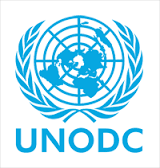VIENNA/NEW YORK, 30 November 2017 (UN Information Service) — Countries must be helped to detect stolen cultural property as part of the work to dismantle criminal networks, the Executive Director of the UN Office on Drugs and Crime (UNODC), Yury Fedotov, informed the UN Security Council today.

“We must take the opportunity to further strengthen efforts to better safeguard vulnerable cultural property in various areas of conflict, as well as pursue longer-term measures to prevent terrorists and criminals profiting from trafficking,” he said.
Mr. Fedotov was speaking, via video link, at a UN Security Council meeting, under the Italian Presidency, on “Maintenance of international peace and security: destruction and trafficking of cultural heritage by terrorist groups and in situations of armed conflict.”
The UNODC Chief urged the international community to focus on the effective implementation of the UN Convention against Transnational Organized Crime, the UN Convention against Corruption, as well as the International Convention for the Suppression of the Financing of Terrorism.
He said UNODC was working closely with the UN Educational, Scientific and Cultural Organization (UNESCO), INTERPOL, the World Customs Organization (WCO) and others to support countries and promote comprehensive responses to stop looted or stolen cultural property from being trafficked from the affected countries.
Mr. Fedotov added there was a need to help countries detect stolen cultural property and improve international cooperation in the investigation, prosecution and adjudication of cases related to trafficking in cultural property. “Only in this way can we protect precious cultural heritage from being lost forever,” he said.
A report on the subject prepared for the Council by UN Secretary-General Antonio Guterres “noted with grave concern the involvement of non-state actors, notably terrorist groups, in the destruction of cultural heritage and the trafficking in cultural property and related offences.”
Other speakers at the Council event were Vladimir Voronkov, Under-Secretary-General, United Nations Counter-Terrorism Office, Audrey Azoulay, Director-General of UNESCO, Jürgen Stock, Secretary General of INTERPOL and Alessandro Bianchi, Expert, Italian Ministry for Cultural Heritage and Activities and Tourism.
